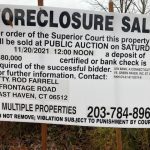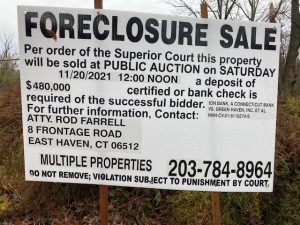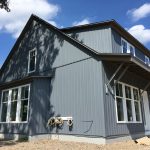Rocky Corner Newsletter
February 2022
_______________
Rocky Corner’s vision is to be
a caring cohousing community
focused on sustainability and conservation.
*************************
Lisa Prevost describes herself as “a freelance journalist specializing in housing, real estate development and the transition to clean energy.” She wrote an award winning book in 2013 titled Snob Zones: Fear, Prejudice and Real Estate. “Snob Zones is an exploration of the outrageous lengths to which towns will go to keep out housing for the less affluent.”
Prevost has been following our cohousing project for over 10 years. She wrote an article about us for the NY Times in 2001 and again this past weekend. She also wrote an article about Rocky Corner for the Energy News online journal.
We recommend reading all of these articles.
A few of us, who remain committed to Rocky Corner project remaining cohousing, want to share our thoughts about the latest NY Times article.
Anne – “I think it is important our followers know we weren’t as stupid about things as the comments make it sound. We did consult professionals along the way.”
Elvy – “In retrospect, I wish we had made a stronger argument about the hardships involved in breaking the mold of how things are done around housing development; how the systems in place don’t work in favor of projects like ours; instead of facilitating a more sustainable way of living, they seem to conjure to make it harder to create living environments that have beneficial outcomes for society and for the the people who live in it.This tack would have given more force to the intrinsic idealism of our project and it would have given a higher meaning to our perceived failures.The quote by Dick at the end of the article: “We are still optimistic that we can make a change in the world” encapsulates that idea.”
Marie -“I am mentioned in the article but not quoted. What I had said to reporter Prevost is that I was really disappointed with the lack of support from some of our professionals to help us keep the costs down. What is missing from the article is the other major delays – the CT Department of Housing which took almost a year to release the funds that subsidized the construction of the affordable units, to the construction company PAC Group which never got us to closings on any of the homes. We broke ground May 2018 and were told that some residents would move in Summer of 2019. Many construction days there were no workers at the property. Poor contractor planning? Covid? Closings and occupancy would have generated the funds to pay back the construction loan and would have helped us sell the units. That is how all developments are planned – build homes and get them occupied as quickly as possible. My house was completed in the Spring of 2020 except for water connection. I had hoped that the Rocky Corner project could be a model for how construction should be done -a third of the units affordable and all built for passive and active solar use. It still could be.
Eli – “I think it’s important for the future developer to know that in spite of everything (including various articles). We are still a community. We are still want to make a group offer and buy the homes we have put work into.”
Latest updates
The foreclosure that Ion Bank chose to do in December of 2020 is now completed. The bank has taken possession of the land and the buildings. 
The 13 households that remain committed to buying homes in the Rocky Corner cohousing neighborhood continue to meet as a group to discuss our next steps.
We recently communicated with the CT Department of Housing (DOH) about the Assistance Agreement that we had with them. This agreement concerns the $2.6m funds the DOH department provided to us to subsidize the affordable homes at Rocky Corner. That money was loaned to us and has all been spent on construction. If the affordability conditions in the Assistance Agreement are maintained the loan is forgiven.
According to our housing consultant David Berto,
That agreement included a procurement process which we followed: lottery and ongoing process for affordable applicants to follow. The agreement also was based on the fact that GH Inc was building cohousing.
DOH can ask for their $2.6m back. They are in the co-first position. The requirements in the original assistance agreement between DOH and GH Inc have to be followed by Ion Bank and by any developer. Otherwise they would be in default. If they did not follow the terms of the assistance agreement, Bethany P&Z would have to agree because it would be a significant change to the original zoning approval which has a mix of affordable and market rate homes.
A woman interested in purchasing a home at Rocky Corner reached out to Ion Bank last week by phone and emailed us about her conversation:
“Stephanie Bruno (of Ion Bank) said they only got the keys back a few weeks ago because they wanted to be nice to the group that owned it and give them time to remove personal items.
They are currently evaluating the property and will then decide if they will complete construction and give it to a realtor to sell the units, or if they will sell the whole thing as is. It depends on the outcome of the evaluation. She added that everything is taking a bit long due to the weather but the goal is to get it wrapped up soon.
They have not asked realtors to look at it yet.
I told her that my goal is to sell my place in NYC and join a cohousing community, and since this development is the only one in this area, I am very interested in buying a unit and am looking to make a decision in the near term. I added that I find that realtors are not familiar with cohousing and may not know how to market it as such.
She said they will definitely reach out to me as soon as it’s been evaluated and will let me know how they will proceed.”
For those of you new to our newsletter, here is some background that should help your understanding:
There are 13 households who have been working together for years to build the first cohousing in Connecticut. We hope we will be able to move in and create the neighborhood we want with the same goals of sustainability, conservation and community that we envision.
The Rocky Corner infrastructure is complete, including a community well water system, underground electric, and septic systems for the 30 planned homes. The common house is over 90% finished and 22 homes have been constructed, many close to completion. Rocky Corner’s.
Once we know that Ion Bank, or a new developer, is willing to work with us to complete Rocky Corner as planned, we will resume information sessions. Our info sessions are intended to help people understand cohousing and life at Rocky Corner before considering purchasing a house.
A brief history:
Like most cohousing neighborhoods, the creation of Rocky Corner has taken years. We started meeting in 2006. We found the land we wanted and hired the professionals needed to create the neighborhood we envisioned. We got zoning approval from the town of Bethany in a process that took 2 years. We purchased the land in 2014. We broke ground in 2018 and looked forward to some of the homes being ready for occupancy in 2019. Delays from many fronts slowed our progress. Without the closings we expected, which would have continued to generate funds to continue active construction, we used up our construction loans from Ion Bank in the summer of 2020.
In November 2020, Ion Bank decided to foreclose on the project rather than accept our offer to give the project to them via a deed in lieu of foreclosure. In November 2021 of this year, Ion Bank “won” the bid to acquire the land and buildings by bidding substantially more than the appraised value. They have taken full ownership of the project including the land and buildings.
Whichever developer ends up finishing the project, they must comply with the plan approved by the Bethany Planning and Zoning Commission years ago. That plan includes the affordable homes, easements for agriculture and open space, a maximum of 30 homes to allow for land conservation and organic land care practices.

 neighborhood we envisioned. We got zoning approval from the town of Bethany in a process that took 2 years. We purchased the land in 2014. We broke ground in 2018 and looked forward to some of the homes being ready for occupancy in 2019. Delays from many fronts slowed our progress. Without the closings we expected, which would have continued to generate funds to keep building, we used up our construction loans from Ion Bank in the summer of 2020.
neighborhood we envisioned. We got zoning approval from the town of Bethany in a process that took 2 years. We purchased the land in 2014. We broke ground in 2018 and looked forward to some of the homes being ready for occupancy in 2019. Delays from many fronts slowed our progress. Without the closings we expected, which would have continued to generate funds to keep building, we used up our construction loans from Ion Bank in the summer of 2020.











